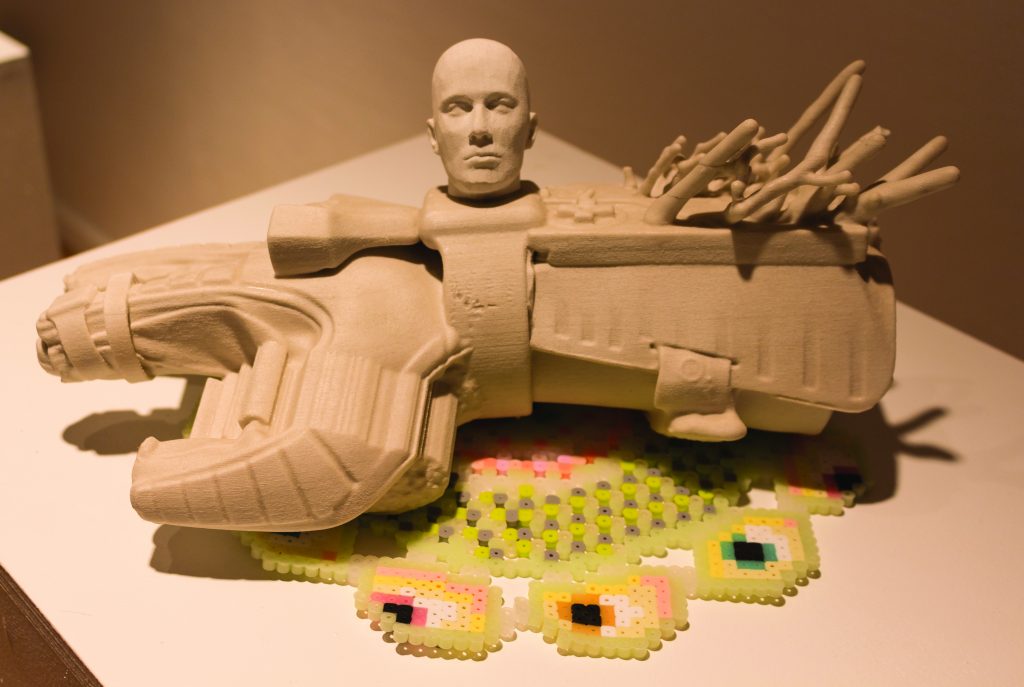
Chrys Weedon | Entertainment Editor
“Nightcore Deep Cuts” is the title of a new exhibit featured at the Cannon Gallery of Art in Campbell Hall.
Artist Tabitha Nikolai is showcasing pieces of her art that have never been shown in Oregon before. “Nightcore” refers to a genre of music that edits popular songs by increasing the speed and pitch, therefore making a song sound hyper-positive and danceable. This genre was born on the internet.
“Nightcore’s quickening makes conventional (and previously enjoyable) music feels glacial and frustratingly predictable. This parallels an accelerating pace of life, work, and socialization under information age capitalism,” says the description of the exhibit in the Cannon Gallery.
All of the pieces in the exhibit are centered around technology and the online world.
The gallery includes interactive pieces in which participants can manipulate objects on computer screens, and dawn various audio headsets to capture the full experience of the exhibit. Another interactive piece is a large bean bag chair, acting as the partner to a nearby sculpture/display. Along with these pieces that onlookers can touch and manipulate are other sculpture-type pieces. The mediums used range from 3D printer to virtual environments to perler beads and spray paint. There are nine pieces total.
It sounds confusing. In a way it is true, and some may see that as the point. The pieces included in this exhibit showcase a unique and interesting perspective that is not seen often in popular culture.
“It’s hard to say it’s my favorite per se,” said Nikolai, “but the most important one to me is ‘Smol Monument to Maddie Rose and Ally Steinfeld.’” Rose and Steinfeld are both young trans women who have faced bigotry and various horrors because of their identities. Maddie Rose was threatened with death, thus causing her to move out of her hometown of Achille, Oklahoma. Ally Steinfeld’s story is even more vicious and disturbing. Steinfeld lived in Missouri up until she was brutally murdered. “Growing up in conservative places can be very repressive and dangerous and so I wanted to make something in solidarity with queer people in small towns or rural America,” remarked Nikolai.
Nikolai grew up as an only child to a single mother in Salt Lake City, Utah. She is now based in Portland, Oregon. Previously, Nikolai has taught at the Pacific Northwest College of Art and Portland State University, but now describes herself as a “recovering academic.”
“Within my speculative realms, I center narrative focus on the monster, its circumstances, and its avenues of agency,” reads Nikolai’s website, “this is a response to widespread negative attitudes toward transgender people.”
Nikolai’s exhibit opened on Nov. 7 and will be on display until Dec. 7. Nikolai also recently gave a talk at Abby’s House titled “Queer/Trans/Femme Solidarity Through Art.”
Contact the author at howlentertainment@wou.edu
Photo courtesy of Ashlynn Norton

